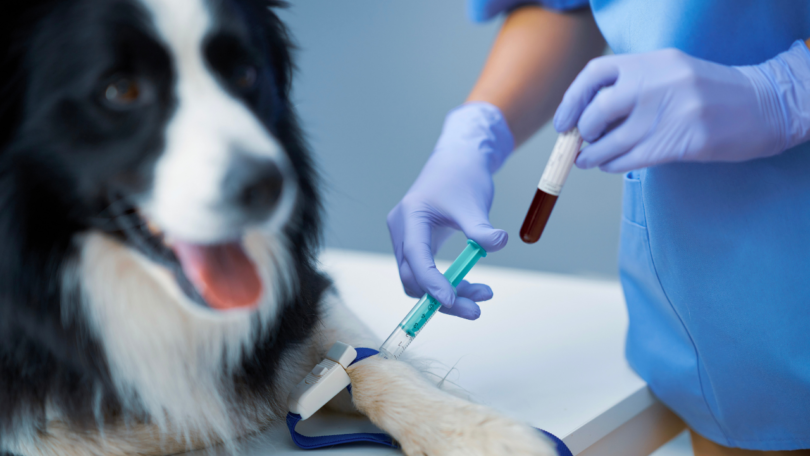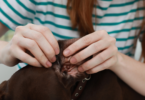Ah, the joys of pet ownership! The unconditional love, the wet-nosed cuddles, the Instagram-worthy moments… and the mysteriously disappearing money from your bank account. If you've ever found yourself wondering how your furry friend manages to eat hundred-dollar bills when you're not looking, welcome to the club! Let's dive into the world of unexpected pet expenses that can turn your budget into a chew toy faster than you can say “Who's a good boy?”
The Vet Bills That Make Your Wallet Whimper
Picture this: It's a beautiful Saturday morning. You're sipping your coffee, scrolling through social media, when suddenly, your dog starts making a noise that sounds like a cross between a goose honking and a car backfiring. Congratulations! You've just won an all-expenses-paid trip to the emergency vet!
One shell-shocked pet owner shared, “I swear, my dog waited until after hours on a holiday weekend to eat an entire box of crayons. It's like he was trying to recreate a Jackson Pollock painting in his digestive tract!”
Veterinary care, especially emergency care, can be shockingly expensive. From routine check-ups to unexpected illnesses or injuries, these costs can quickly add up. As veterinarian Dr. Marty Becker puts it, “Pets are like kids – they have an uncanny ability to get sick or injured at the most inconvenient (and expensive) times.”
To give you an idea of potential costs:
– Annual check-ups and vaccinations: $200-$400
– Dental cleaning: $200-$1,000
– Emergency visit: $1,000-$5,000 (or more for complex cases)
One pet owner quipped, “I'm pretty sure my vet's office has a picture of my dog in their ‘VIP client' section. They probably have a wing named after him at this point!”
To help manage these costs, many pet owners opt for pet insurance. As one savvy dog mom shared, “I got pet insurance after my third emergency vet visit in a year. Now, instead of panicking about costs when my dog decides to taste-test a sock, I just sigh and reach for the insurance card.”
The Gourmet Tastes of Fido and Fluffy
Remember when you thought feeding a pet would be as simple as picking up a bag of kibble now and then? Oh, sweet summer child. Welcome to the world of specialty diets, organic treats, and food allergies you never knew existed.
One exasperated cat owner lamented, “My cat turned her nose up at the fancy feast I bought her and proceeded to eat a houseplant. Apparently, she's going for a more ‘farm-to-table' approach.”
The cost of pet food can vary widely depending on the quality, brand, and your pet's specific needs. Premium or prescription diets can cost significantly more than standard options. And let's not forget about treats – because what's the point of being a pet if you can't guilt your human into giving you snacks?
Rough estimates for annual food costs:
– Small dog or cat: $200-$400
– Medium dog: $400-$800
– Large dog: $600-$1,000+
These figures can skyrocket if your pet needs a special diet. As one dog owner shared, “My dog developed allergies and now eats better than I do. I'm considering asking the pet store if they offer a frequent buyer program – maybe I can earn enough points for a vacation!”
The Never-Ending Supply Run
Leashes, collars, beds, toys, poop bags – the list of supplies your pet “needs” seems to grow exponentially. And just when you think you've bought everything, your furry friend decides to turn their indestructible toy into confetti in record time.
One creative pet owner joked, “I'm thinking of opening a store called ‘Stuff My Dog Destroyed.' We'll sell slightly chewed shoes, half-eaten remote controls, and the remnants of supposedly indestructible dog toys.”
Here's a rough breakdown of potential annual supply costs:
– Toys and treats: $50-$300
– Beds and furniture: $50-$200
– Leashes, collars, and harnesses: $20-$100
– Grooming supplies: $30-$100
And let's not forget about the hidden costs of pet ownership – like replacing the shoes, furniture, or electronics that fall victim to your pet's curiosity or teething phase.
As one resigned cat owner shared, “I've accepted that my furniture is now ‘distressed chic.' It's not claw marks; it's ‘character.'”
The Grooming Galore
Depending on your pet's breed and coat type, grooming can be a significant ongoing expense. From regular baths and haircuts to nail trims and teeth cleaning, keeping your pet looking (and smelling) their best can take a bite out of your budget.
One poodle owner quipped, “My dog's haircuts cost more than mine. I'm seriously considering learning to groom her myself – how hard can it be to give a dog a mullet?”
Potential grooming costs:
– Professional grooming: $30-$90 per session (frequency varies by breed)
– At-home grooming supplies: $100-$300 initially, plus ongoing costs
As celebrity dog groomer Jorge Bendersky advises, “Regular grooming is not just about looks – it's essential for your pet's health and comfort.” So while it might be tempting to skip that grooming appointment, remember that a well-groomed pet is usually a happier, healthier pet.
The Training Trials
Whether you're dealing with a new puppy or an adult dog with behavioral issues, training costs can quickly add up. From basic obedience classes to specialized behavior modification, investing in your pet's education is crucial – but it can be pricey.
One frustrated dog owner shared, “I spent hundreds on obedience classes, and my dog still thinks ‘come' means ‘run in the opposite direction as fast as possible.' I'm beginning to think he's not the one who needs training – it's me!”
Potential training costs:
– Group classes: $50-$200 for a multi-week course
– Private training sessions: $50-$150 per hour
– Board and train programs: $500-$2,500+ per week
As dog trainer Victoria Stilwell says, “Training isn't an expense; it's an investment in your relationship with your pet.” Just remember to factor in the cost of treats – because let's face it, most dogs are highly motivated by their stomachs!
The Vacation Conundrum
Planning a getaway? Don't forget to factor in pet care costs! Whether you opt for a pet sitter, boarding facility, or decide to bring your furry friend along, vacationing with (or without) a pet can add a significant amount to your travel budget.
One cat owner joked, “I'm pretty sure my cat sitter lives better than I do when I'm on vacation. My cat has her wrapped around her little paw – gourmet meals, daily play sessions, and I swear I saw a tiny spa robe in my suitcase when I got back.”
Potential pet care costs during travel:
– Pet sitter: $20-$50 per day
– Boarding facility: $25-$80 per night
– Pet-friendly hotels: Additional $20-$100 per night
– Airline pet fees: $100-$200 each way
And if you decide to bring your pet along, don't forget about the cost of pet travel gear, like carriers, travel bowls, and portable litter boxes.
As one dog-loving traveler shared, “I've become an expert at packing for my dog. He has his own suitcase now. I'm pretty sure he travels with more luggage than I do!”
The Home Modification Madness
Sometimes, making your home pet-friendly requires more than just hiding the TV remote. From installing pet doors to setting up elaborate cat climbing structures, home modifications for pets can be surprisingly costly.
One cat owner admitted, “I spent more on my cats' climbing tree than I did on my own furniture. At this point, I'm not sure if I live in an apartment or a feline amusement park.”
Potential home modification costs:
– Pet doors: $100-$500+
– Cat trees and climbing structures: $50-$500+
– Dog ramps or stairs: $50-$200
– Fencing: $1,000-$5,000+
As one dog owner shared, “I installed a doggy door, thinking it would make my life easier. Now my dog thinks he runs a 24/7 concierge service for the neighborhood squirrels.”
The Wardrobe Woes
Who knew pets needed their own wardrobes? From practical items like winter coats and booties to… less practical items like Halloween costumes and formal wear, dressing up your pet can be a surprisingly expensive hobby.
One small dog owner confessed, “My Chihuahua has more outfits than I do. He has a raincoat, a winter parka, and even a tuxedo. I'm pretty sure he judges me when I wear the same shirt two days in a row.”
Potential pet clothing costs:
– Practical gear (coats, booties): $20-$100 per item
– Costumes and specialty outfits: $20-$50+ per item
As pet fashion designer Ada Nieves says, “Pet fashion isn't just about looks – it can serve practical purposes too, like keeping your pet warm or protecting their paws.” Just don't be surprised if your pet gives you the side-eye when you try to put them in that adorable shark costume.
The Unexpected Emergencies
No matter how well you plan, there's always the potential for unexpected emergencies. From swallowed socks to broken bones, these surprise incidents can put a serious dent in your savings.
One cat owner shared, “My cat once needed emergency surgery to remove a hair tie from her stomach. $3,000 later, I now keep my hair ties in a locked safe. I'm only half joking.”
Potential emergency costs:
– Foreign body removal surgery: $1,000-$5,000+
– Broken bone treatment: $1,500-$4,000+
– Poisoning treatment: $500-$3,000+
As veterinarian Dr. Justine Lee advises, “Always have an emergency fund for your pet. You never know when you might need it, and it can literally be a lifesaver.”
The Breed-Specific Surprises
Certain breeds come with their own unique (and often expensive) needs. From wrinkle cleaning for Shar Peis to hip dysplasia treatments for large breeds, these breed-specific issues can add up quickly.
One Bulldog owner lamented, “I didn't realize I'd need to become an expert in wrinkle care. Between the special shampoos, ointments, and regular cleaning, I feel like I'm running a spa for my dog's face folds.”
Potential breed-specific costs:
– Wrinkle care supplies: $20-$50 per month
– Hip dysplasia treatment: $1,500-$6,000+
– Brachycephalic breed airway surgery: $2,000-$5,000+
As veterinarian Dr. Karen Becker says, “Every breed has its quirks and potential health issues. It's important to research these before getting a pet so you can be prepared both emotionally and financially.”
The Senior Pet Expenses
As our beloved pets age, they often require more medical care and special accommodations. From arthritis medications to mobility aids, caring for a senior pet can be a labor of love – and a strain on the wallet.
One owner of a senior cat shared, “My 18-year-old cat is on more medications than my grandmother. Between the pills, special food, and orthopedic bed, I'm pretty sure she's living better than most retirees!”
Potential senior pet costs:
– Prescription medications: $20-$100+ per month
– Mobility aids (ramps, orthopedic beds): $50-$200+
– More frequent vet check-ups: $200-$500+ per year
As veterinarian Dr. Andy Roark advises, “Caring for a senior pet can be challenging, but it's also incredibly rewarding. Budget for increased care as your pet ages, and cherish the extra time you have together.”











Leave a Comment